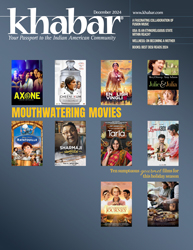The Need for Archives
And thoughts about such efforts for the Atlanta Indian community
In this age of social media where we think nothing of having the ability to share precious moments (or even mundane ones) with friends, family, and the whole world—just moments after they occur—we may fail to see the importance and need for formal archiving efforts. We may fail to see the significance of historical chronicling for posterity, when, in essence, we are chronicling our lives all day long, often in real time.
To be sure, social media is wonderful. You can see photos of the birthday party of your favorite niece or nephew in Bangalore even while the cake is still being eaten, and in the very next glance read up on the legendary advice of a historic figure such as Chanakya, and in the next, find out something obscure about guns and the Constitution. In some ways, there are no forces larger than Facebook and YouTube in archiving our modern lives.
And yet there are obvious drawbacks and limitations of casual and leisurely forums such as Facebook, no matter how voluminous, convenient, and real-time they may be. For one, Facebook archives millions of mini-universes, each closed off to another. While this makes it great for socializing and networking within your own personal set of friends, family, and other personally relevant groups and organizations, it is not by a long shot, a substitute for formal archiving of a community, society, or a demographic group. Moreover, there is no organizing principle or search tools (as of yet) for formal studies.
In contrast, a purposefully envisioned and professionally curated archive is an indispensible tool for any community that takes its roots, history, and journey seriously. It is a comprehensive collection of artifacts, documents, images, audio and video files, and much more, with the specific purpose of chronicling a community and its pioneers, visionaries, trendsetters, and trailblazers, as well as its milestones.
“If you don’t know where you’ve come from, you don’t know where you are,” said James Burke, the highly regarded contemporary historian. Indeed. The fact that Diwali is now celebrated in the White House, or that we now have Indian-Americans as governors of two of the 50 states becomes truly meaningful only with the background that up until 1946, Asian Indians were not even allowed citizenship in this country.
“The histories overlooked by archives are often the first ones to be forgotten,” states the home page of the South Asian American Digital Archive site. What are we in the Atlanta Indian community doing to archive our history and our stories? Whether we intended it or not, Khabar has turned out to be a great archival tool for the community. For 20 years, we have painstakingly and passionately chronicled people and milestones of our regional community. In our cover stories we have explored themes like interracial marriages, the life of our senior citizens, the nightlife of our youngsters, our technology trailblazers, our political activism, how Indian weddings are going mainstream, and many more. Right within our organization is a sizable repository of photos and articles that has traced our community for two decades, through its current status as a leading demographic group in the state (relative to its size).
There is room for much more to be done. Interested individuals and institutions could conceivably explore opportunities with mainstream organizations such as the Atlanta Regional Commission or the Atlanta History Center, which may have interest in collaborating on such efforts. Khabar can help by sharing from our yet uncurated repository.
Enjoyed reading Khabar magazine? Subscribe to Khabar and get a full digital copy of this Indian-American community magazine.
blog comments powered by Disqus











